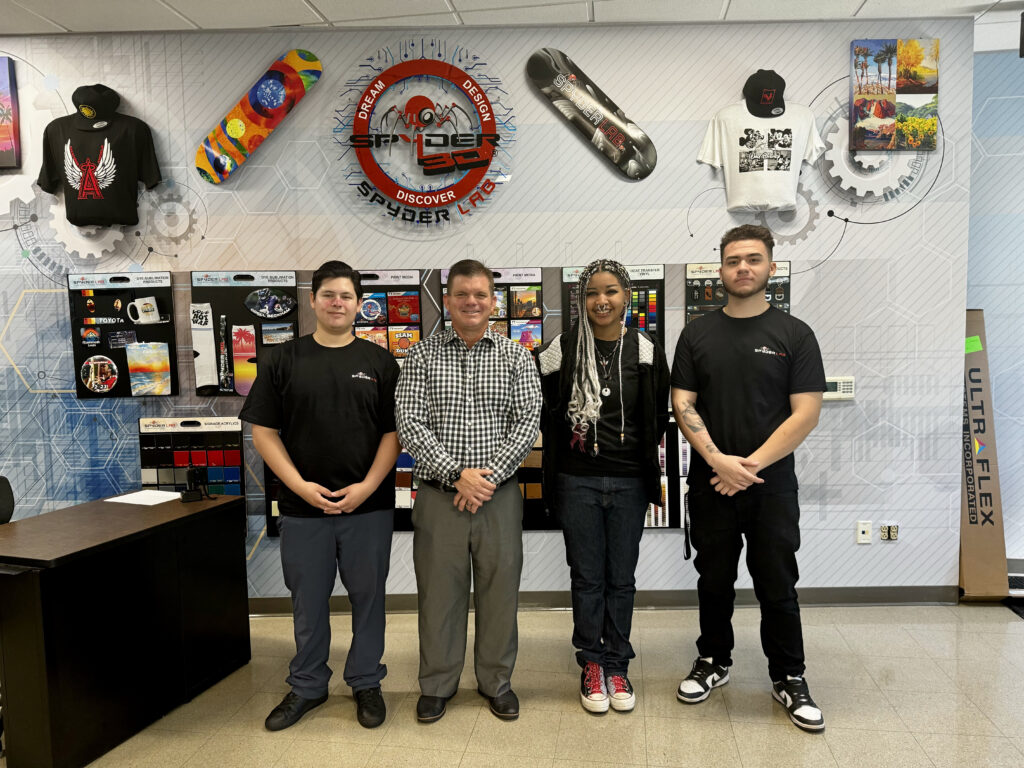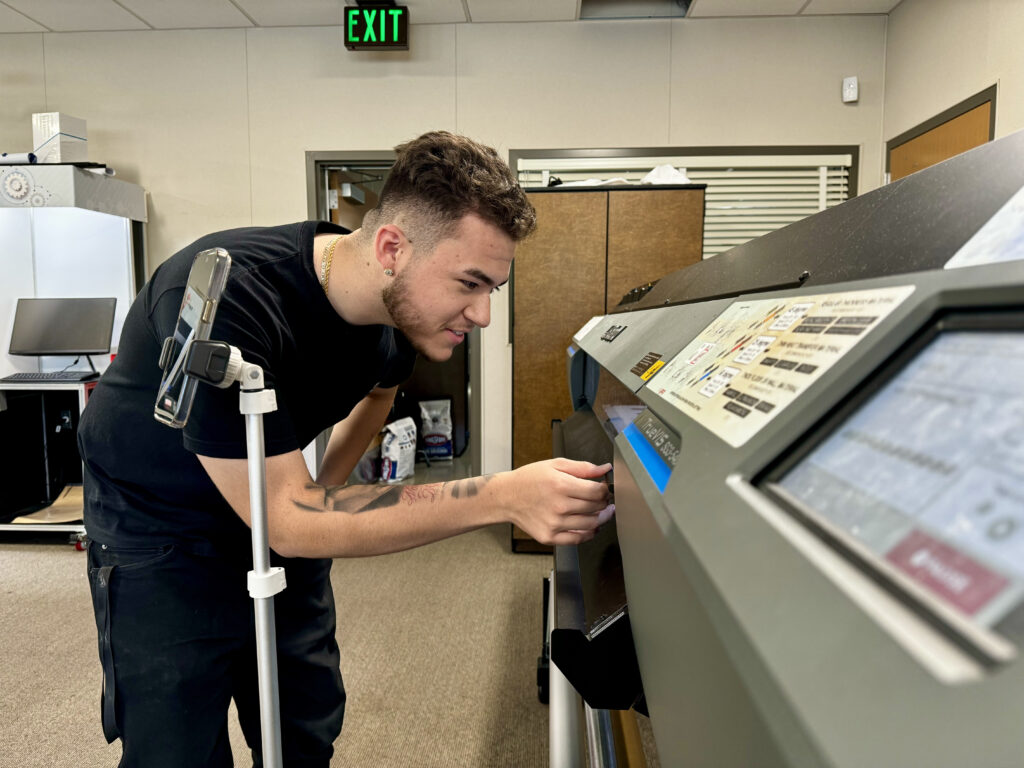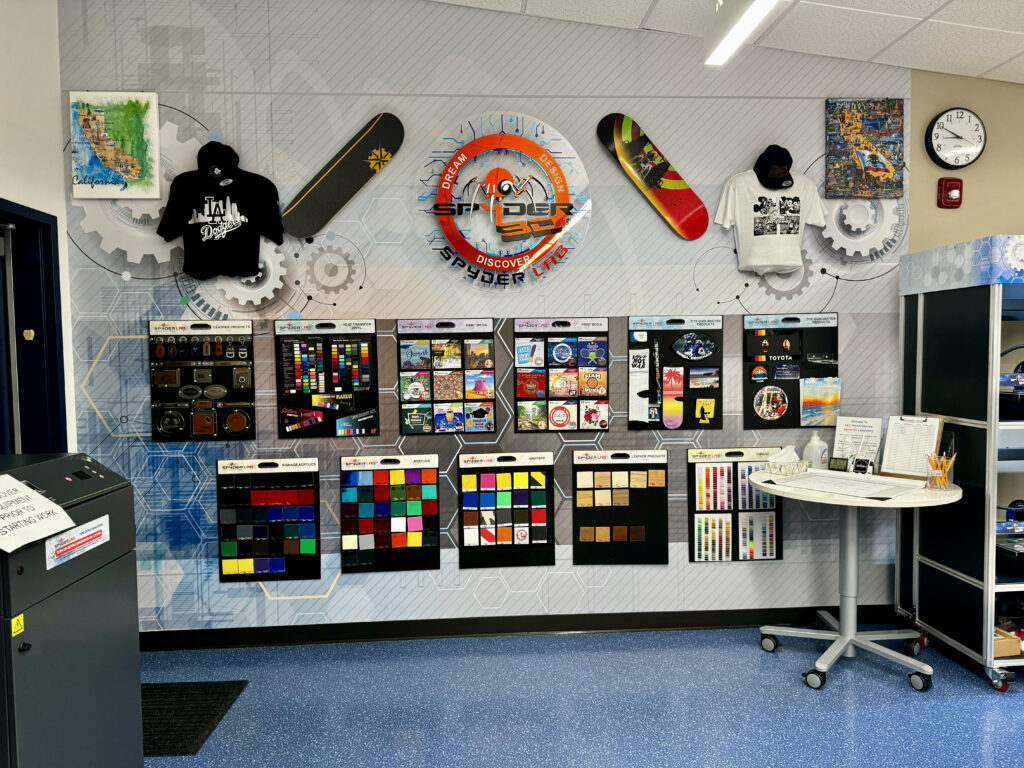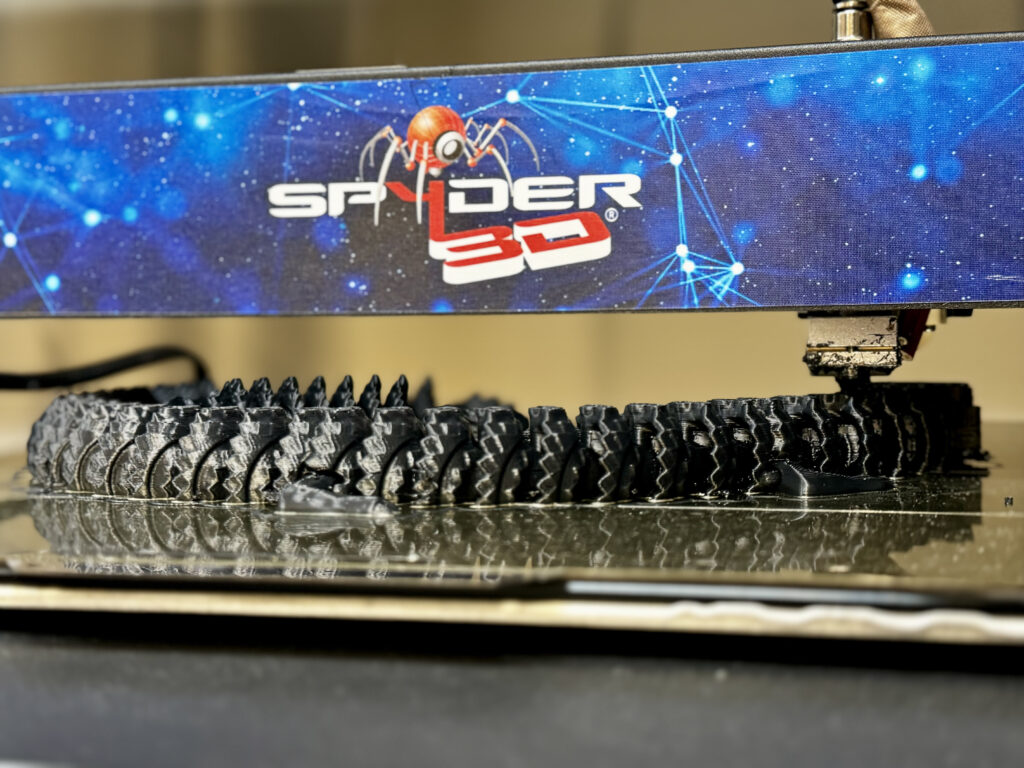Teachers from the Orange County Department of Education’s Harbor Learning Center North and South campuses are facing a unique challenge: Students in the ACCESS program are so enthralled by the hands-on learning experiences they’re receiving in the Spyder Lab, they often do not want to leave class.
Engaged with the lessons and experience that the program offers, students are spending their lunch breaks and free periods in the classrooms, seizing opportunities to delve deeper into projects.
ACCESS stands for Alternative, Community and Correctional Education Schools and Services. The program offers pathways for nearly 2,500 students to learn in non-traditional settings and gain the academic credits necessary to graduate within the program or with their home school districts.
One of those pathways is a career technical education — often referred to as CTE — program that partners with Spyder Lab. These state-of-the-art facilities are equipped with industry-standard technology such as 3D printers, direct-to-garment printers and vinyl cutters. Spyder Labs, with the support of teachers like Richard Wray and Michael Poirier, provide students with hands-on experience in various technical skills, fostering creativity and practical learning in a supportive environment.
Engagement and empowerment
Many of the students who enter Richard Wray’s class at HLC North Campus and Michael Poirier’s class at HLC South Campus are at a stage in their lives where they face the existential question: “What do you want to do with your life?” It’s tough to answer, especially when they might not know what options are available or the scope of careers in the “real world.”
In response, Wray and Poirier welcome students into the Spyder Labs, where they foster a business-oriented mindset through hands-on projects that develop both soft and hard skills. This practical experience proves invaluable whether students aim for further education or immediate employment after high school.
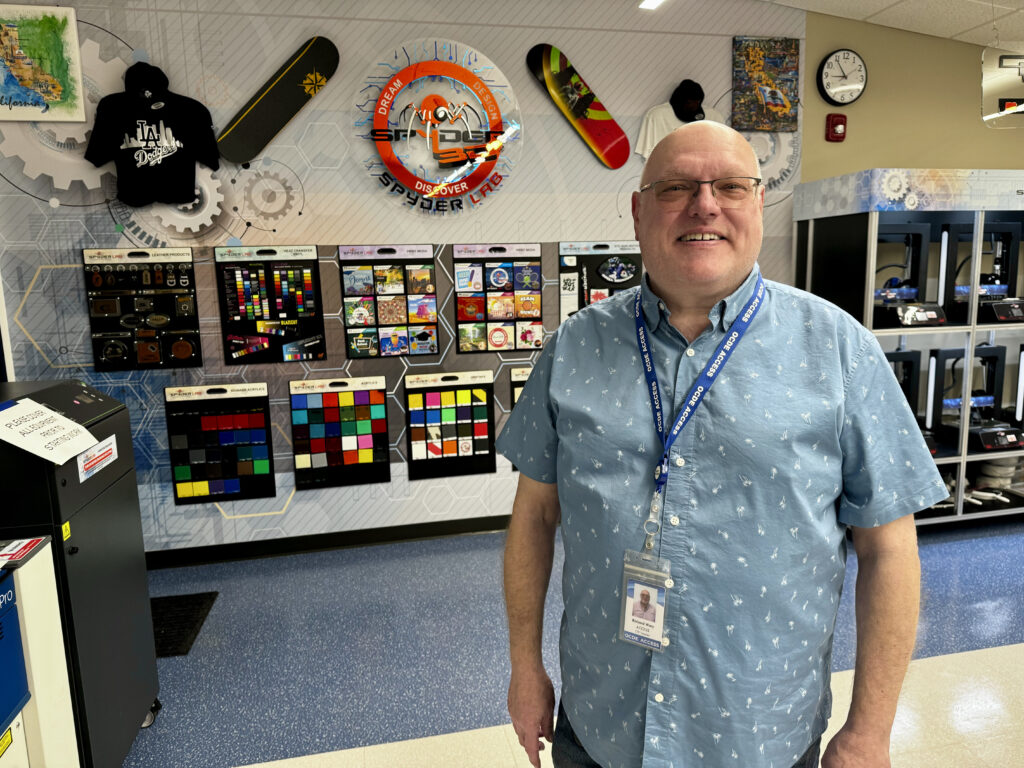
“That’s what we want for our students, especially when you have students who weren’t given the best opportunities or support, or made choices that didn’t serve them well,” Wray said. “Regardless of all of that, we’re here, and we have an opportunity to improve their skills.”
The longtime educator worked closely with 17-year-old Alex, a recent ACCESS graduate, at the north site. Initially, Alex entered the pathway looking for a way to get out of his more traditional classes. It was only after engaging with equipment and guidance from Wray that Alex realized the potential of the Spyder Lab program.
“I started to notice the potential in the Spyder Lab program when I realized that I could use what I learned in class — for example, making T-shirts on the direct to garment machines — to create my own business of designing T-shirts,” Alex said.
The student approached his employer at a local restaurant and asked if he could sell team uniforms. Supported by his teacher and his boss, Alex was able to learn how to communicate with a client and manage a large project.
Impressed by Alex’s initiative, Wray says Spyder Lab provided him with advanced training and certification, followed by a paid mentorship opportunity at HLC South Campus alongside Poirier.
A bright future
Before joining ACCESS nearly three years ago, Poirier worked for carmakers BMW and Mercedes-Benz, all while running his own culinary catering business that kept him busy with hands-on work.
For Poirier, teaching is not just a profession but a personal calling.
“I was raised by my mom and grandmother,” Poirier said. “School wasn’t my top priority back then, so being in this position now has been truly transformative for me.”
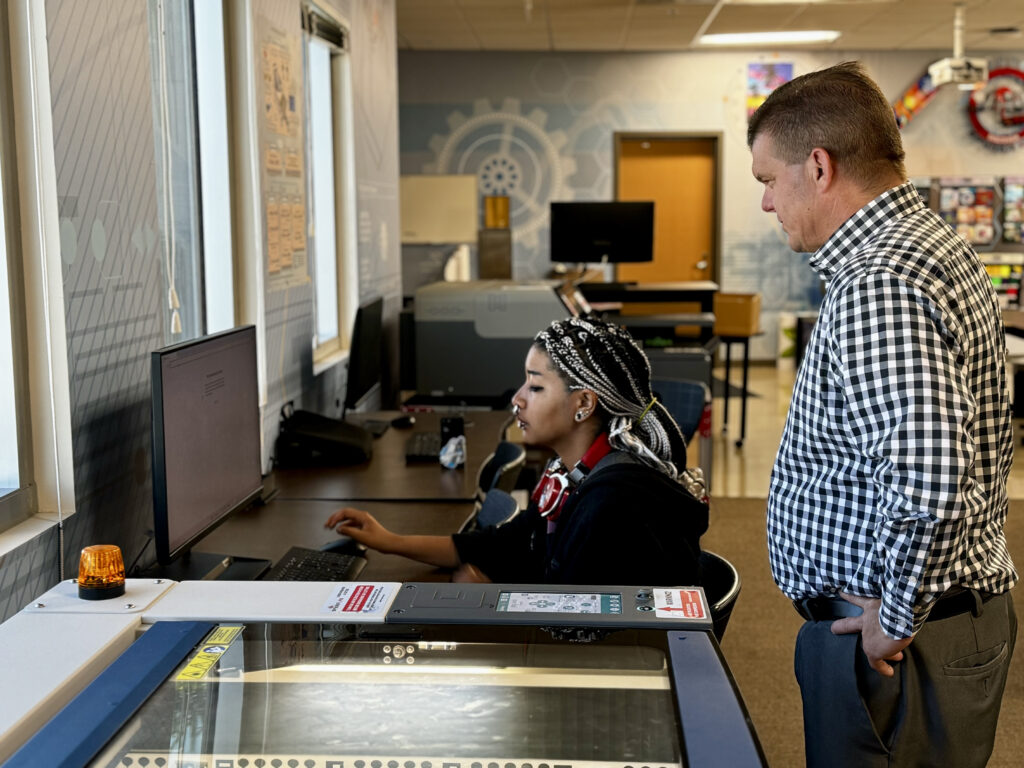
Since launching the Spyder Lab at Harbor Learning Center South Campus, Poirier has seen a significant change in student engagement. Formerly absent students now attend consistently, often needing reminders when class ends.
Poirier is particularly proud of his former student, Light, who in late June graduated from the ACCESS program at just 16 years old — a year ahead of schedule. Light, a creative individual with a passion for gothic and alternative fashion, enjoyed working with the vinyl machine and direct-to-garment printer in the Spyder Lab.
“Printing out different designs and bands on shirts was really enjoyable,” Light said. “I often couldn’t afford to buy them myself, so being able to create them was not only fun but also made these styles more accessible to me.”
Following a similar path as Alex, Light was also offered the opportunity to participate in Spyder Lab’s certification process. After completing his training, he will begin a paid mentorship position at the HLC North campus starting in July.
Echoing Poirier’s sentiments, Wray and his colleagues are hopeful that more students will consider exploring CTE pathways. Recognizing that the journey can seem overwhelming, these educators strive to create classrooms that are welcoming environments where students can thrive and discover their passions.
For additional information about OCDE’s Alternative, Community, and Correctional Education Schools and Services, visit the ACCESS program webpage.

